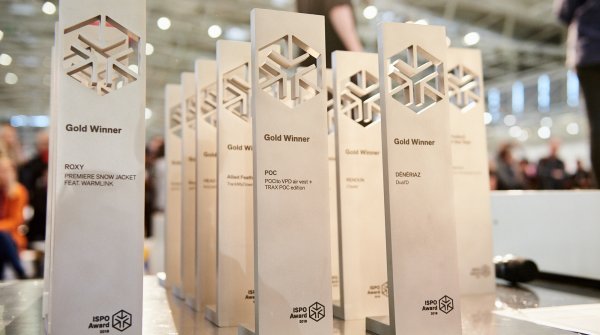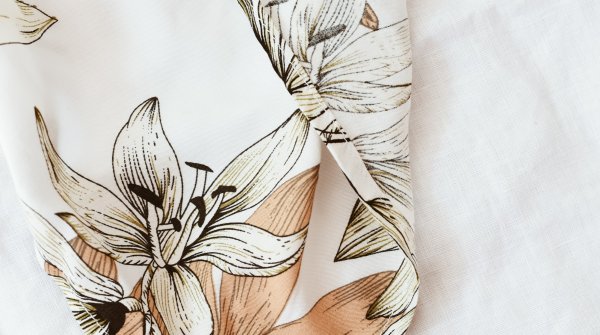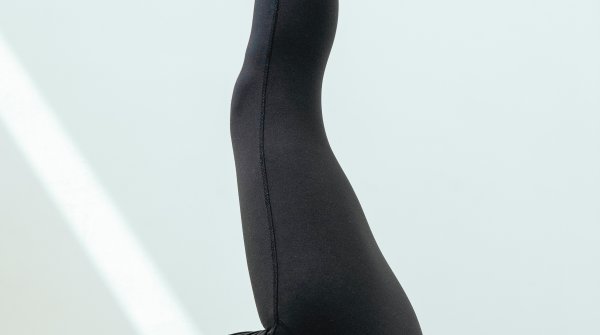
Yogis value a sustainable and conscious life. And yet many already fail when it comes to their equipment. Of course, very few people like to hear that. Because the yoga lifestyle is also an sustainable one. At least on Instagram.
The truth is bitter: most yoga mats come from China. Made cheaply from PVC, they are not abrasion resistant, the abrasion is often harmful to the environment, and the service life is only short.
Anna Souvignier and Sophie Zepnik also live a mindful, conscious lifestyle. At least they think so. Until in 2016 an art work in an exhibition in Gothenburg uncomfortably holds up a mirror to them. That exhibit denounces the ambivalence of the yogis. Little plastic, an ecological footprint and fairly produced clothing - all well and good. But most of them still practice yoga on a cheap mat - quickly bought on the Internet.
Caught. That's how the two young women, studying sustainability management in Mälmo at that time, feel when they leave the exhibition. Everything about them is green - just not their yoga mats. In the evening they start doing some research, trying to find a sustainable yoga mat. Only problem is, they can't find one.
"So we decided we had to do something," says Sophie Zepnik.

There is a risk in holding up the mirror to people and showing them that they are not doing enough. And yet it is important in times of climate change and pollution. hejhej-mats starts right there. Not by pointing an accusing finger but with a lot of love.
Anyone who buys a hejhej-mat can breathe a sigh of relief: All materials are sustainable, 100 per cent recyclable and resource-saving. The start up hejhej-mats is the first closed-loop yoga brand that, in the interests of circular economy, uses materials that are already in abundance. A convincing argument, not only for people who love yoga and pay attention to a conscious life. And yet one that makes you think. And might be risky. Because nobody - especially in the yoga scene - likes to hear criticism of their own green actions.
It is immediately clear to the two students that they have to question themselves and make changes themselves. What isn't immediately clear to them is that they might mix up an entire scene by lovingly criticizing their double standards. The two young women just focus on their goal - to create a sustainable yoga mat - and ignore all possible risks.
With hejhej-mats, they want to create what so many yoga mats miss out on. Sustainability and environmental protection. "That means: We wanted to use materials that are in abundance and that can be recycled again." The product should be recyclable and, in the sense of the circular economy, also degradable, and customers should be able to return the product to the company at the end of its life cycle, after it has been used until worn out.
But can that work? Convinced of your own idea, Anna Souvignier (29) and Sophie Zepnik (28) in 2016, after extensive preparatory work, bur still the same year they became aware of the problem, founded their yoga brand hejhej-mats.
"In our research, we were looking for a material that is no longer used. We got stuck with foam production for furniture and mattresses," says Sophie Zepnik. During the manufacturing process, numerous cuttings are left over that end up in the rubbish bin. "And that even though the resource is flawless, like new."
Before contacting foam manufacturers, the two founders develop a hejhej-mats proto-mat. And they like it. "The majority of our mat consists of foam residues, on top of which is a medically-compliant membrane that is very durable - and of course recyclable."
The mat is ready, so off to production. But it doesn't happen that quickly for hejhej-mats. "The search for foam producers was actually very difficult. We contacted quite a few people, described our idea and only got rejections," says the 28-year-old founder. "We often had the impression that we were not really taken seriously as young female students with our unusual idea." Giving up is not an option - and the two founders are rewarded. A family business thinks the idea is great and gets involved in the yoga mats business.
The start up went into production with 300 mats. Today, the two founders produce 2000 mats every one to two months. Production is still done together with the same family business near Nuremberg. "It was important to us that we also produce locally and thus save CO2 emissions. It also gives us an accurate overview of working conditions here." At least one of the founders is still present at every production, checking the quality and work processes.
In logistics, too, hejhej-mats attaches importance to being a sustainable as well as socially responsible company. "We shipped our mats ourselves for a very long time, until we realized we couldn't do that anymore." But instead of working with a giant logistics company, Sophie Zepnik and Anna Souvignier decide to work with a workshop of people with disabilities to handle the shipping. "We are so happy that the people there wrap our packages, sew on the logo and ship our products." For now, the two drop in on their workshop team every now and then, but in the long run, the founders would like hire their own team of people.
hejhej-mats is still considered a startup. The two women have deliberately turned down investors. "We didn't want to take our company from zero to 100, but rather grow slowly." hejhej-mats is 100 per cent self-financed, with only two crowdfunding campaigns launched by the founders. "We are still very happy with this path. We wanted to do our thing and not have to justify all our decisions in terms of sustainability to anyone."
Sustainability is an important issue within the company. "We only put products on the market that are recyclable and degradable as part of the circular economy." In addition to the well-known hejhej-mats, products now include a yoga bag, a yoga strap as well as a cushion. "We are completely built on sustainability. Every decision we make has to be sustainable." The team, which now consists of five people, works 100 per cent remotely from the home. There are no hierarchies. And for every product sold, one euro is donated to the Earthchild Project in South Africa, which brings yoga closer to children. "We want to give something back."
And that's exactly what hejhej-mats' customers love. "We get a lot of messages from people who say they are so happy to have finally found a sustainable yoga mat from Germany." Many of their customers have been with the founders from the beginning. And none of them were really upset about being made aware of their problematic yoga mats. On the contrary. Their sustainable lifestyle is simply even better with hejhej-mats.
And yet Sophie Zepnik and Anna Souvignier also agree on the following: "It is important to us to convey to our customers that you should only buy products that you really need. Does the old mat still work? Then please keep it. Do you need a new one? Then maybe a sustainable one from hejhej-mats."
Their success proves them right. And that's despite the fact that the road to becoming a social and sustainable company was sometimes rocky. "There were certainly moments when we could have stopped," says Sophie Zepnik. But they both were so convinced of their idea that they never thought of giving up. "We just kept going, taking on every challenge."
And the risk, of failing with such an idea? Wiped away. "We were still students when we started. After graduation, we went straight on with hejhej-mats. We kind of turned a blind eye to the risk."
Something that Sophie Zepnik would also advise other young founders to do: "If you start a new company in the sports sector, you can expect a lot of hurdles and a lot of hard decisions. But if you have an idea that you're burning for, you should keep going."
The two founders still have big plans with hejhej-mats: Four years after their founding, the two want to make hejhej-mats a sustainable closed-loop yoga brand. New products are planned and then there would be the European market. "At the moment we mainly sell in Germany, in the long run we would like to offer a fair alternative to yogis abroad as well." So that everywhere in Europe, nothing stands in the way of living a conscious and sustainable life as a yoga fan.
- Awards
- Mountain sports
- Bike
- Fitness
- Health
- ISPO Munich
- Running
- Brands
- Sustainability
- Olympia
- OutDoor
- Promotion
- Sports Business
- Textrends
- Triathlon
- Water sports
- Winter sports
- eSports
- SportsTech
- OutDoor by ISPO
- Heroes
- Transformation
- Sport Fashion
- Urban Culture
- Challenges of a CEO
- Trade fairs
- Sports
- Find the Balance
- Product reviews
- Newsletter Exclusive Area
- Magazine







